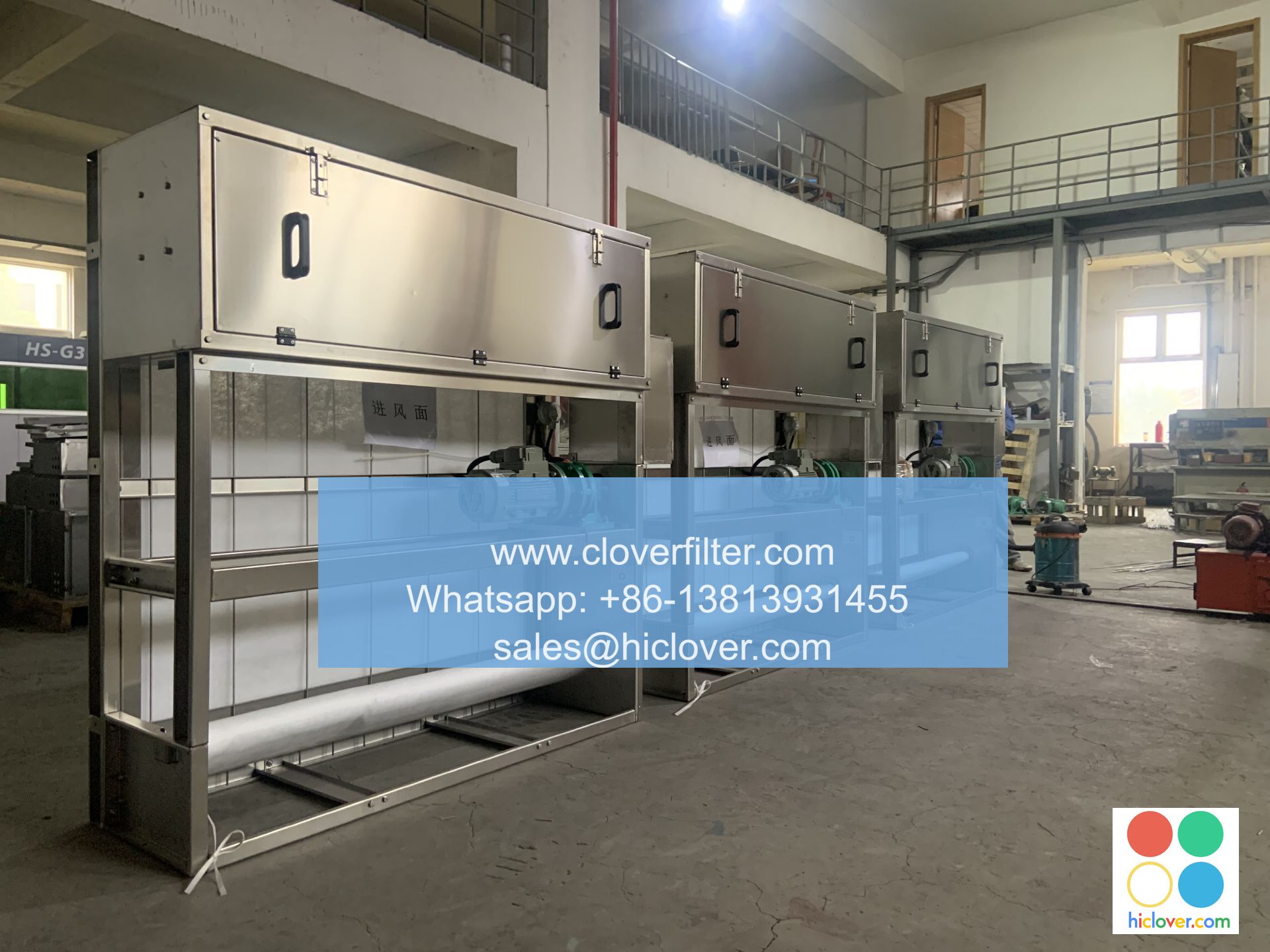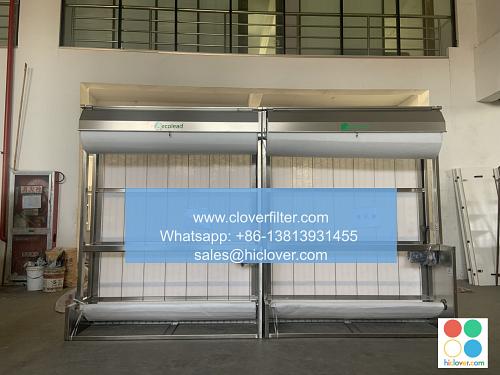Food Research Lab Safety: The Importance of Automatic Roll Air Filters in Preventing Accidents

Food research labs are high-risk environments where scientists and researchers work with various hazardous materials, equipment, and microorganisms. The primary goal of these labs is to develop and test new food products, processes, and technologies while ensuring the safety of the workers, the environment, and the general public. One critical aspect of lab safety is maintaining good air quality, which can be achieved through the use of automatic roll air filters. In this article, we will discuss the importance of these filters in preventing accidents and ensuring a safe working environment in food research labs.
Food research labs often involve working with potentially hazardous materials such as chemicals, allergens, and microorganisms. These substances can become airborne and pose a significant risk to the health and safety of lab personnel. Inhaling these substances can cause respiratory problems, allergic reactions, and even infectious diseases. Moreover, the presence of these contaminants in the air can also compromise the integrity of the research, leading to inaccurate results and contaminated samples.
Automatic roll air filters are designed to capture airborne particles and contaminants, providing a clean and safe working environment. These filters use a rolling mechanism to advance a new filter media, ensuring a continuous and consistent airflow. The filters are typically equipped with a pre-filter and a HEPA filter, which can capture particles as small as 0.3 microns, including bacteria, viruses, and other microorganisms.
The use of automatic roll air filters in food research labs offers several benefits, including improved air quality, reduced risk of accidents, and enhanced research integrity. By removing airborne contaminants, these filters prevent the spread of diseases and reduce the risk of allergic reactions and respiratory problems. Moreover, the filters also help to prevent cross-contamination of samples, ensuring the accuracy and reliability of research results.
In addition to improving air quality, automatic roll air filters also help to reduce the risk of accidents in food research labs. By removing airborne particles and contaminants, these filters reduce the risk of explosions, fires, and other accidents caused by the presence of flammable or combustible materials. Furthermore, the filters also help to prevent the release of hazardous materials into the environment, reducing the risk of environmental pollution and contamination.
Another important benefit of automatic roll air filters is their ease of use and maintenance. These filters are designed to be self-contained and require minimal maintenance, making them an ideal solution for busy food research labs. The rolling mechanism ensures a continuous and consistent airflow, eliminating the need for frequent filter changes and reducing downtime. Moreover, the filters are also equipped with alert systems, which notify lab personnel when the filter needs to be replaced or maintained.
In conclusion, automatic roll air filters play a critical role in maintaining a safe and healthy working environment in food research labs. By removing airborne particles and contaminants, these filters prevent the spread of diseases, reduce the risk of accidents, and enhance research integrity. With their ease of use and maintenance, automatic roll air filters are an essential component of any food research lab, ensuring the safety of lab personnel, the environment, and the general public.
Conclusion: The use of automatic roll air filters in food research labs is essential for maintaining a safe and healthy working environment. These filters provide a clean and safe working environment, reduce the risk of accidents, and enhance research integrity. By investing in automatic roll air filters, food research labs can ensure the safety of their personnel, the environment, and the general public, while also maintaining the accuracy and reliability of their research results.
FAQs:
Q: What is the purpose of automatic roll air filters in food research labs?
A: The primary purpose of automatic roll air filters is to remove airborne particles and contaminants, providing a clean and safe working environment and preventing the spread of diseases and accidents.
Q: How do automatic roll air filters work?
A: Automatic roll air filters use a rolling mechanism to advance a new filter media, ensuring a continuous and consistent airflow. The filters are typically equipped with a pre-filter and a HEPA filter, which can capture particles as small as 0.3 microns.
Q: What are the benefits of using automatic roll air filters in food research labs?
A: The benefits of using automatic roll air filters include improved air quality, reduced risk of accidents, enhanced research integrity, and ease of use and maintenance.
Q: How often do automatic roll air filters need to be maintained?
A: Automatic roll air filters require minimal maintenance and are designed to be self-contained. The filters are equipped with alert systems, which notify lab personnel when the filter needs to be replaced or maintained.
Q: Can automatic roll air filters be used in other types of labs?
A: Yes, automatic roll air filters can be used in other types of labs, including biological, chemical, and pharmaceutical labs, where maintaining good air quality is essential for research integrity and personnel safety.

